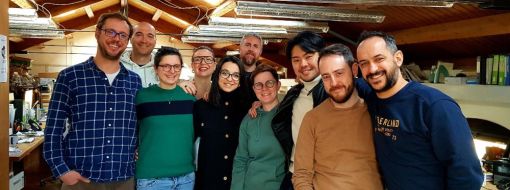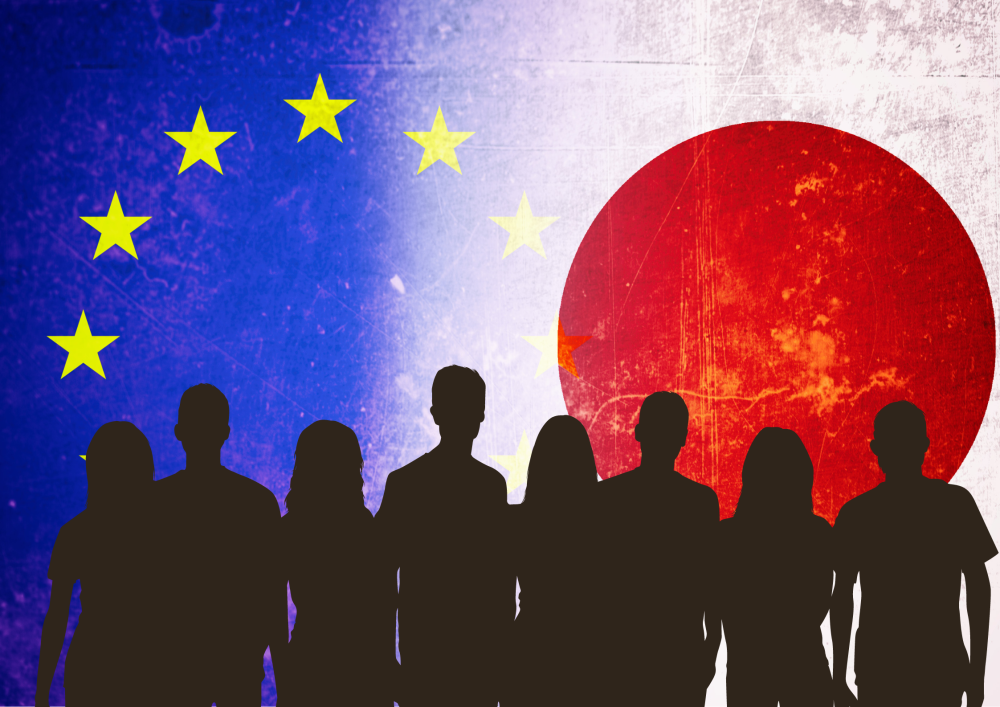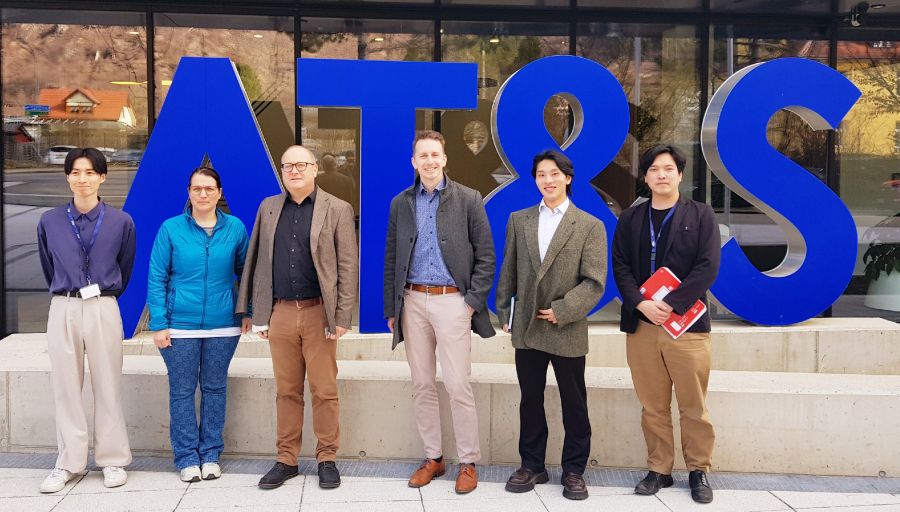

The EU-Japan Centre is happy to present the 5th edition of interviews featuring individuals and organisations making EU-Japan collaboration a reality. In this edition, we introduce the stories of European companies participating in our long-run training programme for Japanese students called ‘Vulcanus in Europe’.
Since its establishment in 1996, more than 500 Japanese science & technology university students received a precious, life-changing learning opportunity by working as interns at European host companies through the ‘Vulcanus’ programme. Today, this programme’s alumni form a unique and significant group of young leaders who facilitate EU-Japan cooperation in various fields. This experience is made possible by many European companies who generously welcome the Vulcanus students from Japan into their teams. We greatly appreciate these host companies as ‘contributors to EU-Japan cooperation’.

We hope you enjoy a snippet of our interview with Dr. Hannes Voraberger and his colleagues at Austria Technologie & Systemtechnik Aktiengesellschaft (AT&S) (photo below), and Mr. Massimo Esposito and his colleagues at U-Series S.r.l. in Italy (cover photo), to hear about their Vulcanus experiences. AT&S attended 3 Vulcanus sessions since 2021 and hosted 5 students, while U-Series S.r.l. attended 2 Vulcanus sessions since 2022 and hosted 2 students.
Q: How has your experience been as a Vulcanus host company? What merits do you see in this type of programme?
AT&S: First, we feel that the process of selecting students is very good. All the students that we hosted were hard-working and we have not been disappointed. We have been assigning Vulcanus students to different teams on purpose. Taking a student can help a team in various ways but it also requires time to train him or her at first. However, every team we gave a Vulcanus student to so far says we can give them another Vulcanus at any time. One reason why the rate of success has been high is the length of the internship. If it was shorter, the cost for the company would be higher than the benefit. Also, we have not met a single Vulcanus who was not polite. Vulcanus students know how to behave professionally. As for the merits of this type of programme - if we want to be successful, we have to open up to different perspectives. Every culture brings a different way of thinking, and in engineering and technology, the Japanese way is very good. It is not that far from the German way of thinking in technology, and we think it adds good value. In addition, a programme like this is absolutely bridging the cultural and language barriers that we have with Japanese companies and is helping our company in this respect, too.
U-Series: For us the experience has been very good, and the programme was well organised. We did not have any particular difficulty. Our team says that it has been enriching to meet a different country, culture, and perspective by hosting Japanese students and it has been good to get a first-hand experience of Japan.
The interview continues online, read the complete version here.
